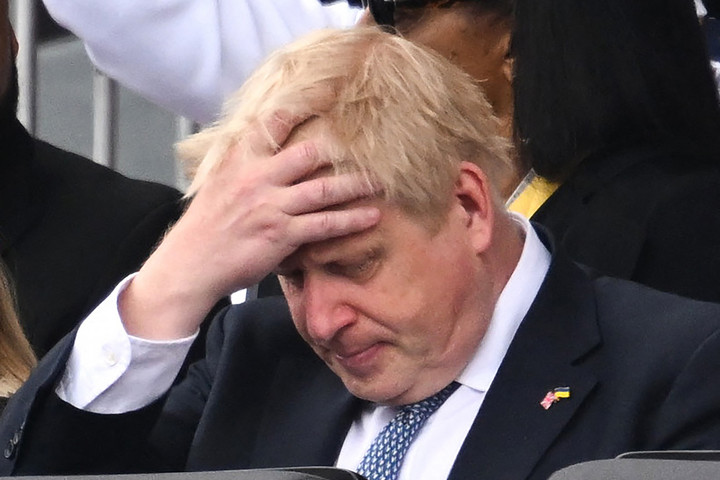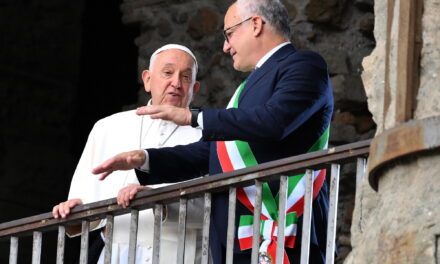Boris Johnson got into this situation because of the partygate case, which caused widespread outrage.
Photo: AFP
British Chancellor of the Exchequer Rishi Sunak and Health Secretary Sajid Javid resigned on Tuesday. Both justified their decision by saying that their trust in Prime Minister Boris Johnson was shaken.
In recent months, Johnson has been involved in an almost unprecedented series of internal political scandals for several reasons, and in June his own immediate political backbench, the lower house faction of the ruling Conservative Party, initiated a vote of confidence against him.
Sunak and Javid announced their departures from Johnson's government almost simultaneously on Tuesday night. Both are among the most influential members of the Conservative Party.
In his letter to the Prime Minister, Sunak - who is considered by many within the Conservative Party as a possible successor to Boris Johnson - justified his decision by saying that the country's legitimate expectation is appropriate, competent and serious governance.
The former finance minister made a clear reference to the fact that, in his opinion, Johnson no longer meets these expectations. He wrote: he believes that these standards are worth fighting for, and that is why he decided to resign from his post.
Sajid Javid - who was also finance minister and head of the Home Office before assuming the position of health minister - said in his resignation letter that although the Conservatives are not always popular, they have always been a competent party acting in the interest of the nation.
Unfortunately, however, in the current situation, the population is starting to come to the conclusion that none of the characteristics apply to the Conservative Party anymore, and the vote of confidence held by the Conservative faction in the House of Commons in June showed that many of the members of the parliamentary party group think so, wrote the former health minister minister.
Sajid Javid said: it is now clear to him that this situation will not change under the leadership of Boris Johnson, and that the prime minister has therefore lost his trust.
At the beginning of June, a faction of his own party in the House of Commons presented a motion of no confidence against Johnson, after it was revealed in recent months that several garden parties and social gatherings accompanied by drinking were held in the Prime Minister's Office and other government institutions in London during the strict restrictions previously ordered to curb the coronavirus epidemic, more than once Johnson with his participation.
The case, popularly referred to as "partygate", has turned into the biggest domestic political scandal of Johnson's prime ministership, which began in 2019.
Johnson won the vote of confidence, but 41 percent of the members of the conservative party group in the House of Commons voted against him.
The most recent scandal was sparked by the fact that Johnson appointed MP Chris Pincher as the deputy head of the cabinet office responsible for ensuring voting and party discipline of the conservative faction in February after they had previously been informed of allegations of sexual harassment against Pincher.
In interviews with the British media on Tuesday evening, Johnson admitted that it was a "serious mistake" and apologized, but he could no longer prevent the resignation of his finance minister and health minister.
Source: Magyar Hírlap/MTI













